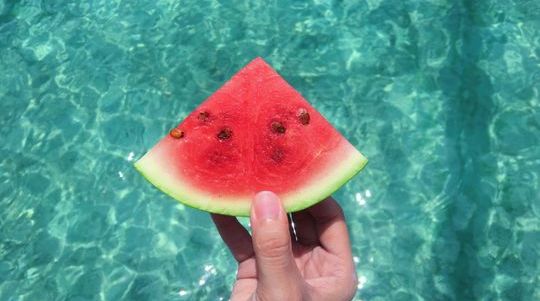UAE health experts have highlighted the importance of preventing dehydration during the Holy Month of Ramadan.
According to doctors, modifying the pre-dawn suhoor meal during the start of the day's fast and the sunset iftar meal taken to end the fast with the right types and proportion of hydrating fluids can make fasting easier and healthier.
Ramadan 2022 has come during the summer season with residents fasting for around 14 hours every day. They only have an eight-hour window to end the fast, pray, hydrate as well as rest. With the right kinds of food and liquids, they can achieve healthy nutrition and hydration to maintain high spirits, stamina and energy during Ramadan fasting.
What is dehydration?
Dehydration is termed as the loss of water from bodies at a faster rate than they can absorb.
Speaking about this, Juliott Vinolia, Clinical Dietician with Dubai-based Medeor 24/7 Hospital, noted that nearly 70 percent of the human body is water which can get lost during several metabolic processes including perspiration, urination, and breathing. Therefore, it is important for the cells to remain hydrated with fluids that contain electrolytes such as potassium, calcium, magnesium, sodium and other vital minerals, the professional added.
What are electrolytes?
According to Vinolia, electrolytes are minerals in the human body having an electric charge. They are present in the blood, urine, tissues and other body fluids. They are highly important to balance the amount of water in the body and ensure that the minerals are in the correct proportions to facilitate proper metabolism.
Metabolism is referred to the ingestion, digestion, absorption and assimilation of nutrients that the human body takes through food and water.
"It is vital to understand that the minerals in our body help us regulate nerve and muscle function, hydrate the body, balance blood acidity and pressure, and help rebuild damaged tissue," she added.
What happens with electrolyte imbalance?
Vinolia explained that when a person fasts without proper preparation and goes without food and water for long periods, they may experience dehydration. Therefore, it is important to stay hydrated before and after ending the fast. She also underlined that all liquids do not have similar benefits.
"For instance, having caffeine or carbonated drinks is likely to dehydrate you more, while having plain water, or water-rich vegetables, clear vegetable soup, will replenish the lost minerals in your body," she noted.
How much water do we need?
Dr Nasrullah Jakhrani, specialist internal medicine at Aster Clinic, stated that daily fluid maintenance requirements for adults include approximately 1.5 to 2 litres of water. Noting that the majority of fluid loss occurs through urine, stool and perspiration, he added that the exact amount of fluid loss cannot be measured. But it is estimated to be approximately 600ml to 800 ml per day.
He went on to advise people to ensure adequate fluid intake during suhoor and iftar during the month-long fasting.
"A person must see to it that a total of 2-3 litres of water is consumed before or after fasting time. This fluid can be in form of water-rich vegetables and fruits such as cucumber, watermelon, or wholesome soups taken along with dense carbohydrates and high fibre foods to help a person maintain good hydration levels throughout the fasting hours," he explained.
Avoid unhealthy foods
Dr Jakhrani also warned against consuming foods that could trigger dehydration, including oily, spicy, fried food and sugar-rich fruit juices as they can result in more electrolyte losses.
"People must also avoid too much caffeine in tea and coffee as these can also cause rapid dehydration the next day. Fasting in Ramadan is beneficial for our health if done properly,” advised Dr Jakhrani.
Food to have during Iftar
· Plenty of fluids – Water, water-rich fruits such as watermelon, musk melon, apples, oranges and vegetables such as watercress, lettuce, cucumber, and tomatoes can be taken in the form of salads.
· Clear vegetable soup or chicken broth
· Healthy proteins in fish, chicken in grilled form and not fried
· Raw nuts rich in protein and enzymes
· Potassium-rich foods, such as dates, bananas, mushrooms, avocados, yoghurt can help in correcting muscle cramps and fluid imbalance
What foods to avoid during Iftar
· High sugar food like chocolates, sweets, carbonated drinks
· Fried foods - Oily items like samosa and spicy food
Food to eat for suhoor
· Protein-rich food such as eggs
· Fiber-rich food such as oatmeal
· Calcium and vitamin-rich food such as dairy products
· Fruit-based yoghurt or laban smoothie with walnuts for better hydration
Foods to avoid during suhoor
· Salty food such as chips, pickles can increase the thirst
· Caffeinated drinks such as tea, coffee
· Refined carbohydrates, such as white floor, donuts, pastries
SOURCE: Gulf News
LINK: https://gulfnews.com/uae/health/ramadan-2022-dont-forget-to-hydrate-yourself-well-1.86894516
 AR
AR UR
UR
